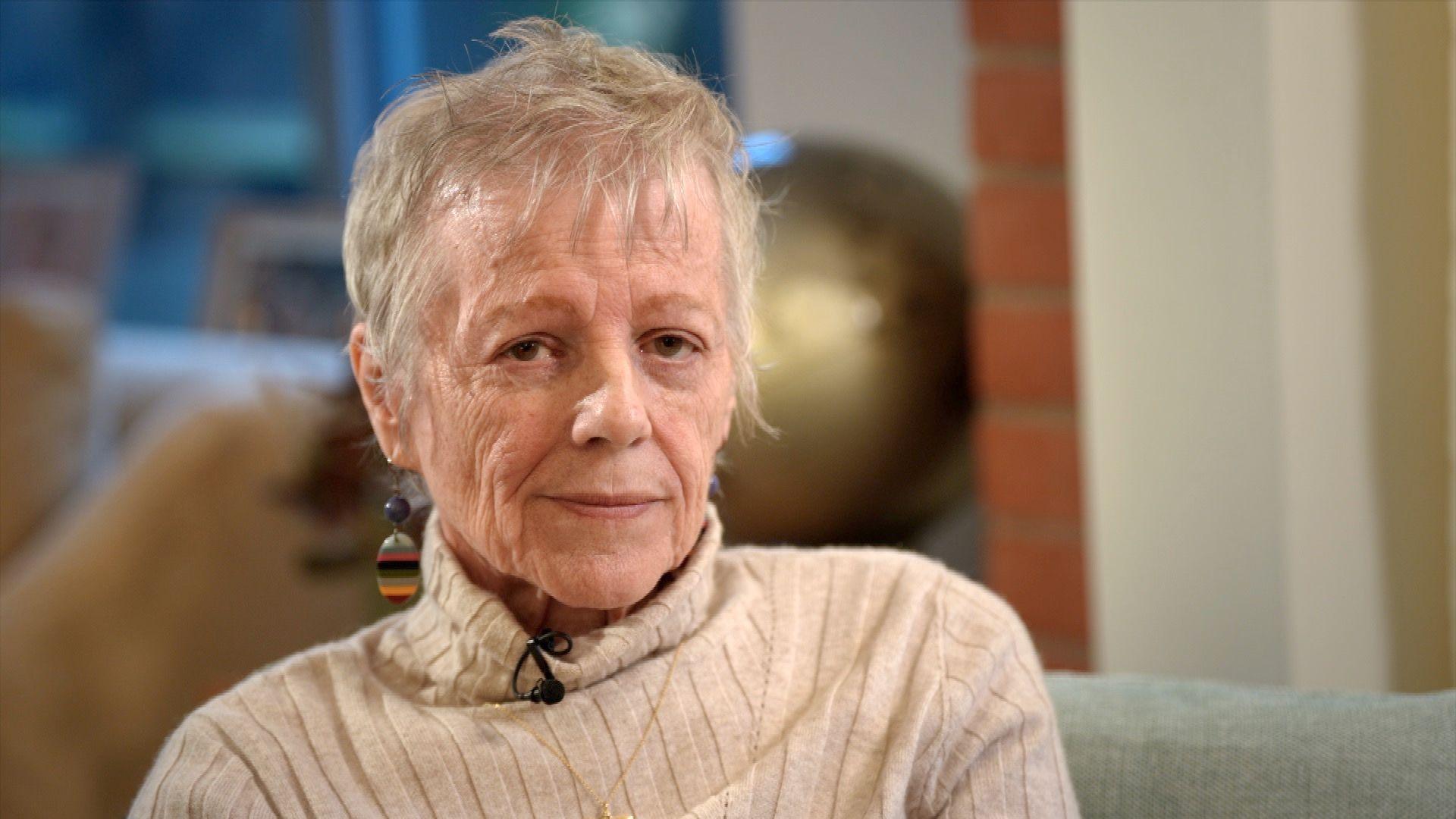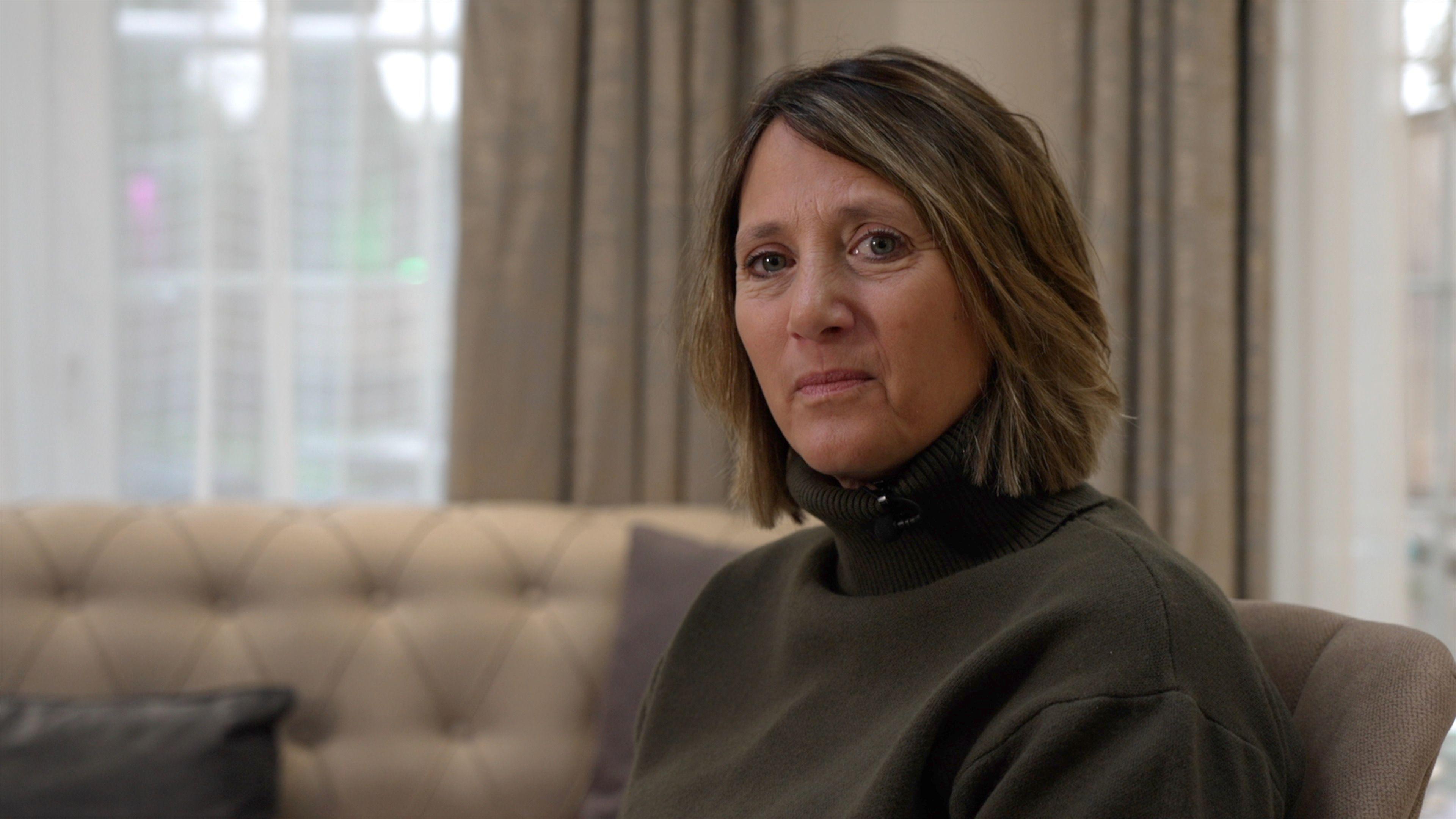Hope, fear, faith and love: Four people on why assisted dying vote matters

Jan Butterworth: "We should make it right for people, give them the opportunity to have a smooth passing"
- Published
For the first time in almost a decade, MPs will on Friday debate and vote on whether terminally ill people should have the right to end their lives.
If MPs vote in favour of assisted dying, it could lead to a significant change to society in the UK, on a par with reforms around the death penalty, divorce, abortion and gay marriage.
MPs last voted on this deeply sensitive issue nearly a decade ago, when they comprehensively rejected the idea. But it is hard to predict how a House of Commons, filled with many first-time MPs and given a free vote on the matter, will approach such a significant debate.
Jan Butterworth wants the choice to end her life. She has advanced endometrial cancer and has been told she has less than six months to live.
She witnessed her husband’s death from liver cancer 30 years ago and does not want to go the same way. “It was a very difficult and very distressing death,” she says.
Under the proposed new law, people like Jan - who have been told they have less than six months to live - would be able to access drugs to end their lives, but only with the agreement of two doctors and a High Court judge who would review the decision.
Jan would like to die at home with her son and daughter by her side but she knows that isn’t likely, even if the bill does pass, because she only has months to live.
“It leaves me with a very poor set of options,” she says. “We should make it right for people, give them the opportunity to have a smooth passing – a comfortable death.”
More on the assisted dying vote
But opponents of the bill are concerned, among other things, that assisted dying being legal would create implicit pressure on those who were eligible for it.
Becki Bruneau has cancer which has spread to her lungs. She is against any change to the law.
“My absolute worry is that if I am in a position like I was two years ago, where I was in so much excruciating pain, and I don’t have someone with me, I could potentially make the wrong decision,” she tells us. “And the wrong decision is not something you can come back from. You’re dead.”
Her view is partly informed by her religious beliefs but also that the bill would be a danger to people with disabilities or terminal illnesses.
It’s an argument often made by opponents of the legislation and especially those who live with disabilities. They are concerned the proposed law would devalue the lives of many vulnerable people.
Becki shares those fears. She says it would open the door to people being subjected to coercive control or being pressured to end their lives prematurely.
“This law potentially puts people in a position where they think they are a burden and the easy option is to end their life. That’s very worrying, especially at a time when people are at their most vulnerable.”
The proposed bill in England and Wales comes with safeguards supporters say will make it the strictest set of rules in the world
But others worry that, if approved, the law on assisted dying could later become looser, meaning more people could have an assisted death.

Becki Bruneau: "The wrong decision is not something you can come back from"
Mark Blackwell has Parkinson’s disease and is cared for round the clock by his wife Eppie. He wouldn’t be eligible for assisted dying under the terms of the bill - but he’s still concerned about the impact the law could have on people like him who have progressive illnesses.
Parkinson’s is not considered a terminal illness. It is a condition affecting specific parts of the brain that become progressively damaged over many years.
Mark’s illness means he can’t speak anymore but he can communicate a little through blinking his eyes.
Asked by BBC News if assisted dying being legalised would make him feel a burden and a pressure to end his life, he indicates it would.
Mark and Eppie have been married for 45 years and she tells us caring for him until the end of his natural life is her way of showing her love for him.
“When we got married we made a vow, for better or worse, in sickness and in health,” says Eppie. “Love is unconditional.”
Again their views are partly shaped by their Christian faith but also, they say, their professional experience. Both worked in psychiatry and had patients who took their own lives.
Religious groups, with a strong belief in the sanctity of human life, alongside disability charities, have formed the backbone of the opposition to the proposed legislation, but the arguments against a change in the law have been couched in very secular terms.
For Mark and Eppie, the argument comes down to simply valuing life.
'Prolonged and very unpleasant'
Friday’s vote is just the latest attempt to introduce assisted dying - it was first debated in Parliament in 1936.
The current bill - called the Terminally Ill Adults (End of Life) Bill - has been introduced by the Labour MP Kim Leadbeater.
She came top of a ballot of MPs and so her bill - known as a Private Members’ Bill - is the first to be considered and has probably the best chance of becoming law.
Even though the government has remained neutral on the issue, and MPs can vote according to their own beliefs, ministers have already come out in favour or against the bill.
For Sir Nicholas Mostyn, a retired High Court judge, the compassionate thing to do would be to give him the choice to end his life before his body deteriorates to the point he can no longer physically do everyday tasks.
Like Mark, he has also been diagnosed with Parkinson’s but he is not yet in the advanced stages of the disease.
“The likelihood, if you’ve got Parkinson’s disease, your ending is going to be prolonged and very unpleasant,” he tells BBC News. He supports the bill – even though it would not give him the right to end his life.
Symptoms of Parkinson’s include parts of the body shaking uncontrollably and slow movement. In the most advanced stages, the disease people can find themselves unable to move and unable to speak.
Sir Nicholas, and some sufferers of other debilitating conditions not considered terminal illnesses, would like the bill to be amended to cover them.
For some critics, this is an important reason to vote against it.
They fear, whether now or in the future, this bill could be widened to include sufferers of non-terminal conditions – this, they say, would be a danger to disabled people.
The example most regularly cited is Canada, which opponents say is an example of a so-called "slippery slope".
Legislation introduced there in 2016 was initially just for the terminally ill, but was extended in 2021 to those experiencing "unbearable suffering" from an irreversible illness or disability. There have been delays to further extensions, but it is still due to become available to those with a mental illness in three years.
Sir Nicholas says: “I just don’t understand the moral argument, which is that because I wish to exercise sovereignty over my own body, that I am in some way facilitating a 'slippery slope’ for abusive treatment of people who don’t actually want to [end their lives].”
Friday’s vote - if it passes - would just be the beginning of a long parliamentary process; weeks of scrutiny by a committee of MPs will follow, as they go through the legislation line-by-line.
The bill will then return to the House of Commons and then the House of Lords where it could be amended in further votes.
Even if MPs vote in favour of the bill - there is still a long way to go before these proposed changes become law.
But if they do, it will mark another significant reform of the law that has seen our society change so much over the past 50 years.